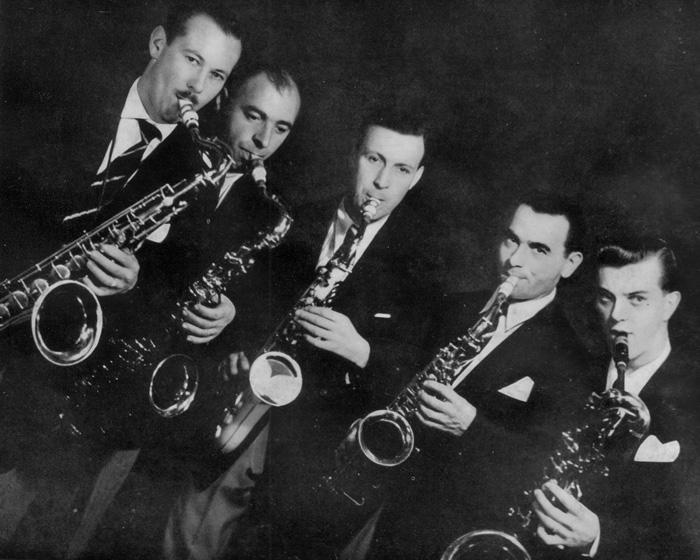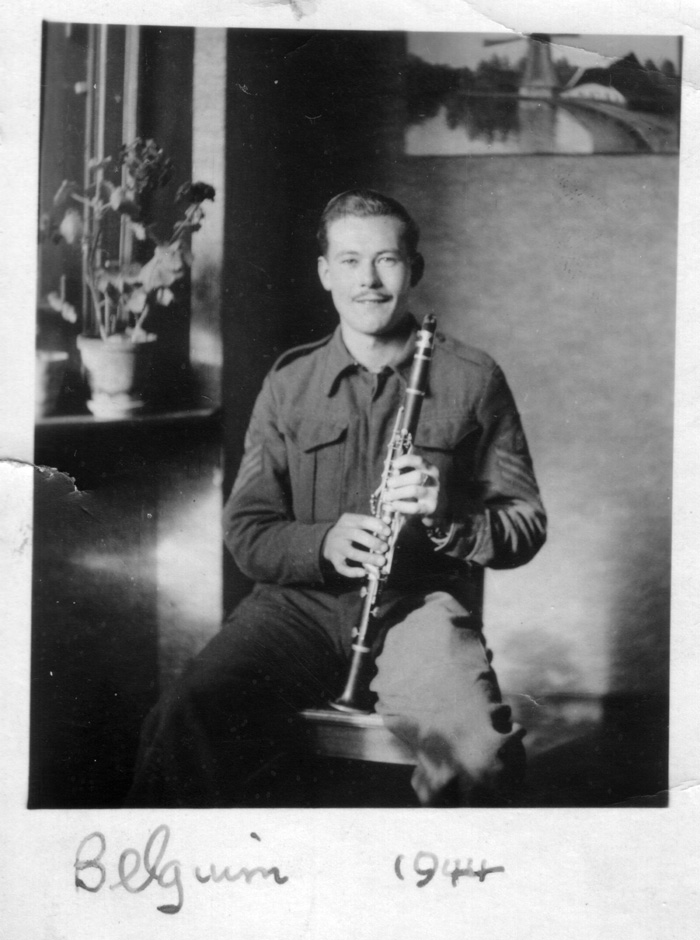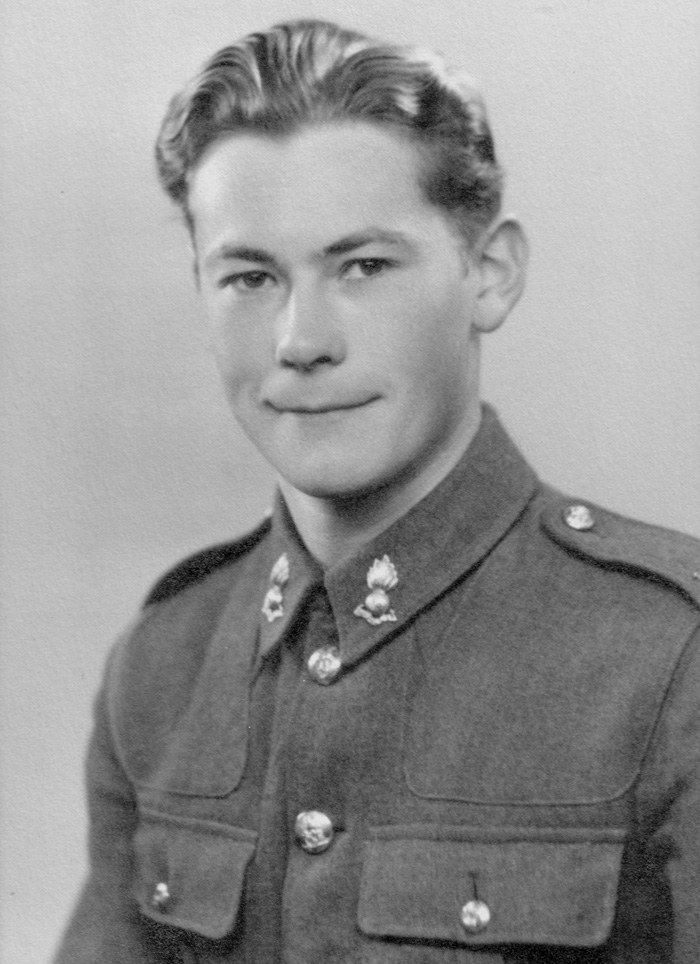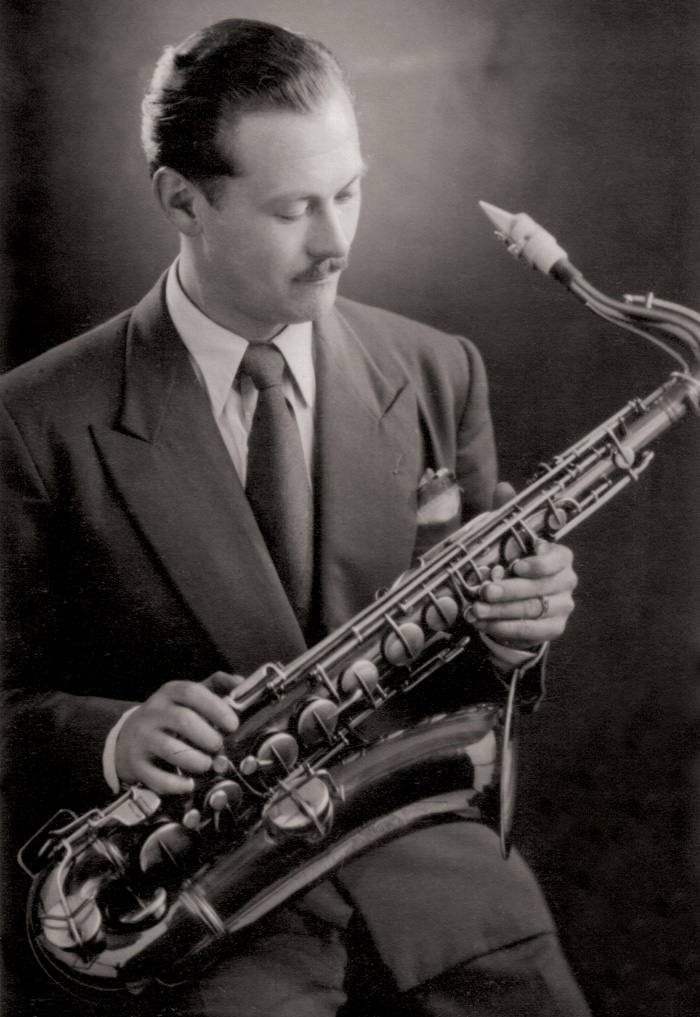The Dawkes Music Story – Jack Dawkes (part 1/2)
2nd November 2018Here at Dawkes we’re proud to be a family business, in fact the fourth generation has just started working with us full time! We wanted to share some of this history through the words of our founder Jack Dawkes over two blogs.
In this first part Jack looks back at his early life including his first musical studies and his time in WWII including the Normandy campaign…
Early Life
The death of my father thrust me into the role of breadwinner at the early age of fifteen. The only musical instruments that I could afford at that time were mouth organ, ukelele and a cheap drum. None of which had the wage earning potential to help support the family! As a regular income was required urgently I took a job on a greengrocery stall in Nottingham’s Sneinton Market. This didn’t last very long and I joined the workforce of the cigarette maker John Player and Sons, this being regarded as a “good steady job” in those parts.
At that time we were able to listen to the short-wave broadcasts from America and I soon became hooked on the Benny Goodman sound. With my weekly wage of twenty five shillings(£1.05 new money) I went along to Jack Brentnall’s music shop and bought my first clarinet. Funnily enough this also cost exactly twenty five shillings. A local clarinet teacher had been recommended to me and he took one look at my prized possession and sent me straight back to the shop. He informed me that it was “high pitch simple system” and not at all what I needed. My clarinet was put down as deposit on a Buisson Boehm system costing £5, the rest to be paid off at 1/6p a week (15p to younger readers).
Army Life
My pals and I thought it would be a smart idea to join the local territorial army unit and get the benefit of the 2 weeks camp each year. We went on our first camp in August 1939 and returned home well pleased with ourselves. It was only a couple of days later that was declared and we were now full time mobilised soldiers. Needless to say, this had not been part of our original plan.
As it happened, the army decided that we needed a lot more training before using us as gun fodder, so in the meantime I was able to keep up with the music studies. Our unit (150th Regt South Notts Hussars Yeomanry – 25 pounder guns) was despatched to Northern Ireland for a long spell. We were able to form a Regimental dance band, doing regular local hops and regimental “do’s”. What was to prove important for me was that the regimental barber, Eugene Palmieri (Ali to his friends) was a good guitarist. He patiently taught me the chord progressions to all the standards and a good insight into harmonic sequences.
My appetite had been whetted and after we had landed in Normandy in June, 1944, I enrolled in a postal course on arranging run by the talented George Evans. He was resting from playing at the time as a result of a bout of TB. He conscientiously marked and commented on every exercise I sent to him, returning the next lesson to me wherever I was in the field during the whole Normandy campaign. In hindsight it seems bizarre, sitting in dugouts and completing scores by the light of a Tilley lamp, but the effort was to pay dividends after the war.
Prior to demob from the army I was transferred to Army Welfare Services in Hamburg, initially to assist in preparing the music for a show at the Savoy Theatre (Hamburg). Whilst there I got to know musicians who were playing at a club (The Crusader club, I believe), amongst whom were Jackie Armstrong and Rusty Hurren, who I was to meet up with again two years later in Lou Praeger’s band. In Hamburg we had access to the AFN studios, where there were some of those marvellous V-discs from the States. We would crowd into the studio and listen in disbelief to the likes of Woody Herman’s “Goosey Gander” and others.
Working Musician
After my demob in 1946 I obtained my first pro job with Jimmy Honeyman at Nottingham’s Victoria Ballroom. Helped by the fact that I was to do arrangements for the band; my tenor playing still left something to be desired, I imagine. I gleaned more useful tips from the veteran tenor player there called Les Cripwell. In 1947, my earlier contact with George Evans paid off and I joined his fantastic ten saxophone orchestra, playing outstanding arrangements. Being a co-operative band, no-one got paid much and as we could not afford to stay in digs when on the road, George equipped a massive pantechnicon with bunks for us to use between gigs.
Next came a short spell with Teddy Foster, the personnel including Cecil Pressling, Dave Ede, Albert Hall, Ronnie and Derek Price, all great players. The lasting memories of that tour are firstly, trying to get from Nottingham to Manchester in the blizzard of 1947 for my first gig, ending up in a snow drift, where I had to abandon my car, and catching what turned out to be that last train to Manchester for 6 weeks. I still imagined that the “show must go on “and it did not occur to me NOT to get to the gig.
The second memory is of travelling over the Yorkshire moors in a coach with windows missing and no heating while Teddy drove by in his limo en route to the gig. Six weeks elapsed before I was able to return to where I had left the car, and I was not surprised to find that it was no longer there! However my enquiries led me to a farmhouse where I found my old Hillman Minx all thawed out in a barn, where the farmer had stored it for my return. Would that happen in this day and age I ask myself? I doubt it.
London Bound
I joined Billy Merrin who was reforming his Commanders to re-open a ballroom in Nottingham until February 1948,when I thought it was time to try my luck “in the smoke” i.e. London. I came down to start a job in Fischer’s restaurant in the West End, only to learn on my first night that the band had received two weeks notice! Things were looking desperate when Ken Mackintosh phoned to say that he was forming a band to go to Nottingham (knowing that it was my home town). Having just left the place I wasn’t keen to go back so soon, but I learned that a tenor player from Lou Praeger’s band was joining Ken, so I nipped smartly along and became his replacement.
The personnel included George Hunter, Duncan Campbell, Don Lusher and the band was pretty good at times. Most enjoyable was playing in the Palais football team which included Johnny Gray, whose knee cap slipped out of place every now and again, needing us to clamber on his back while he jumped up and down to get it back into place.
After 18 months with Lou I joined Paul Fenhoulet for about a year alongside Bob Efford, Jimmy Wilson, and Ted Brennan. The most useful tip I picked up from Paul was how to fold up a dinner jacket without creasing the lapels. Roy Plummer was used on guitar instead of a piano, which was unusual in those days. A short spell with the Harry Parry Swing Club sextet followed and with hindsight, I believe this concluded the first phase of my career…

Jack Dawkes (far left)
Up Next…
We’ll be back soon with the second part of Jack’s story and onto the founding of Windcraft Ltd and Dawkes Music with his son Lindsay. Stay tuned to our Newsletters for more info.


